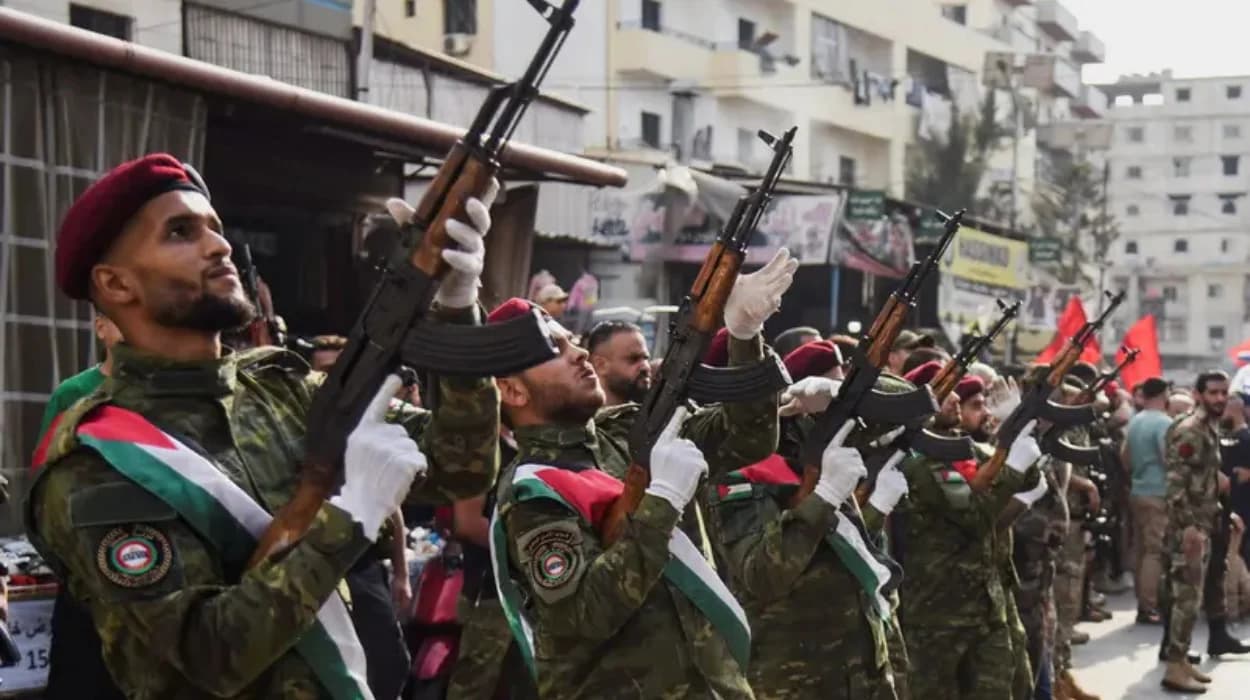A committee has announced that armed Palestinian groups in
Lebanon will commence disarming efforts, marking a significant move towards
stability in the region. The plan involves coordinated actions to reduce armed
factions' influence and promote peace within Lebanon.
Armed Palestinian Groups to Start Disarming
As reported by the Middle East Desk of Reuters, a new
committee formed to address armed factions in Lebanon has declared that armed
Palestinian groups based in Lebanon are set to begin disarming. The committee
aims to ensure that all militant factions relinquish their weapons to
contribute to regional stability.
Background and Context
Lebanon has long been home to armed Palestinian groups, many
of which have historically maintained significant military strength in its
camps and border areas. According to Al Jazeera’s correspondent Basel Abu
al-Foul, the militias have operated semi-autonomously from Lebanese
authorities, creating challenges for national security and sovereignty.
The disarmament initiative emerges amid ongoing efforts by
the Lebanese government and international stakeholders to restore order,
control arms proliferation, and reduce the influence of armed groups that
threaten Lebanon's fragile peace.
The Committee's Role and Announcements
The disarmament committee, comprising Lebanese officials and
representatives from Palestinian factions, announced that the process will
begin shortly after months of negotiations. Al-Monitor journalist Rana Harb
detailed that the committee's objective is to lead a phased, transparent, and
enforceable framework for disarmament, aiming to disband armed groups within
Palestinian refugee camps and surrounding regions.
Mahmoud Abbas, Palestinian Authority President, commented on
the development, expressing hope that disarmament would ease tensions and
enhance Palestinian civil existence in Lebanon, aligning with plans for
political settlement and refugees’ rights.
Reactions from Palestinian Groups
As mentioned by The National’s Middle East correspondent
Joseph Daher, some Palestinian factions welcomed the initiative as a positive
step toward improved relations with Lebanese authorities and a path towards
recognition of their civil status.
However, resistance persists among some militant groups wary
of relinquishing arms without guarantees for refugee rights and security.
Hezbollah, a major Lebanese faction with influence over Palestinian camps, has
also voiced cautious support conditioned on ensuring regional security.
International Community and Lebanese Government Response
The Lebanese government, supported by the United Nations and
international partners, embraced the plan, seeing it as essential for national
sovereignty and stability. UN envoy to Lebanon, Joanna Wronecka, underscored
the importance of disarmament for Lebanon's security and socio-political
cohesion, as reported by UN News.
The international community, including the European Union
and the United States, urged all parties to cooperate fully with the committee
to ensure a peaceful and orderly disarmament process, emphasising that
stability in Lebanon contributes to broader Middle East peace.
Security and Regional Impact
The Guardian’s Middle East desk reported concerns about
potential security vacuums following disarmament if not managed properly.
Authorities are planning to complement disarmament with enhanced police
presence and integration of former militants into civil roles, aiming to
mitigate risks of conflict resurgence.
Experts interviewed by Al Jazeera and BBC highlighted that
the successful disarmament could strengthen Lebanon's internal security, reduce
factional violence, and serve as a model for resolving armed group issues in
other volatile regions.
The announcement of armed Palestinian groups in Lebanon starting disarmament marks a critical juncture in Lebanese and Palestinian affairs. While challenges remain, the coordinated committee's efforts signal progress toward improved security, governance, and community stability. Continued vigilance and cooperation among Lebanese authorities, Palestinian factions, and international actors will be crucial in translating disarmament plans into sustainable peace.
